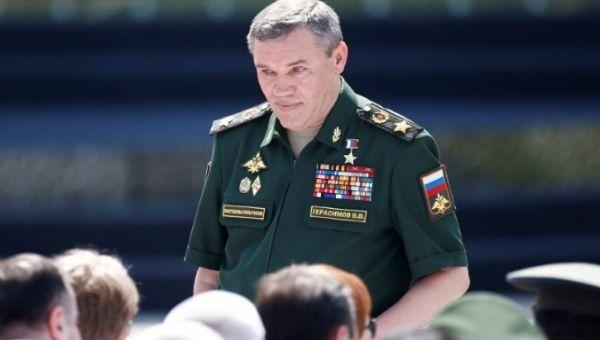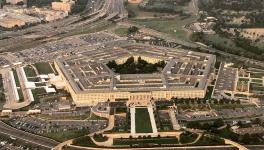Russian Military Chief Warns Japan of US-led Korea Drills

Chief of the General Staff of Russian Armed Forces, Valery Gerasimov, arrives for the opening ceremony of the International Army Games 2017 in Alabino, outside Moscow, Russia, July 29, 2017.
On Monday, General Valery Gerasimov informed Japan of Moscow's concerns that U.S.-spearheaded military exercises around the Korean Peninsula - with junior ally Japan - could escalate tensions with North Korea.
"Carrying out military training in regions surrounding North Korea will only heighten hysteria and make the situation unstable," Gerasimov, chief of the General Staff of the Armed Forces of Russia, said at a meeting with Japanese Minister of Defence Itsunori Onodera.
"We believe that the issue should be resolved only through political and diplomatic means," the general also said, Russia's TASS news agency reported.
Gerasimov’s warning came as the United States and its East Asian junior partners, Japan and South Korea, began a two-day missile tracking exercise in the waters between the Korean Peninsula and Japan on Monday.
The drills are intended to practice the interoperability of the three countries' fleets and their ability to detect and track any alleged missile threats from the Democratic People's Republic of Korea (DPRK), North Korea's official name. These are the first trilateral drills held among the allies since the DPRK carried out its latest successful ICBM test on Nov. 29.
The United States and its regional allies are deploying new computer simulations to practice tracking and potentially intercepting incoming submarine missile from North Korea. Japan and South Korea are carrying out the drills in their own waters with U.S. ships, according to the South Korean Yonhap News Agency.
U.S. President Donald Trump has pushed China to increase pressure on Pyongyang. Throughout the year, both Russia and China have raised the so-called “double freeze” as a solution to spiraling tensions.
China's Foreign Ministry spokesman Lu Kang has denounced the drills as creating a vicious cycle that didn't serve any of the countries' needs.
"All relevant parties should do is still to completely, precisely and fully implement the relevant U.N. Security Council resolutions toward North Korea, and do more for regional peace and stability and to get all parties back to the negotiating table,” Lu said.
“Not the opposite: mutual provocation.”
While Washington has not ruled out the eventual possibility of direct talks with the North to resolve the stand-off, Pyongyang says it won't hold talks until the White House drops its hostile stance and threats of potential nuclear attack.
“Our nuclear weapons will never be a subject matter of negotiations as long as the United States’ policy of pressure on the DPRK has not been uprooted once and for all,” North Korea´s Foreign Minister Ri Yong-Ho told TASS in an interview earlier this month.
Disclaimer: The views expressed here are the author's personal views, and do not necessarily represent the views of Newsclick.
Get the latest reports & analysis with people's perspective on Protests, movements & deep analytical videos, discussions of the current affairs in your Telegram app. Subscribe to NewsClick's Telegram channel & get Real-Time updates on stories, as they get published on our website.
























